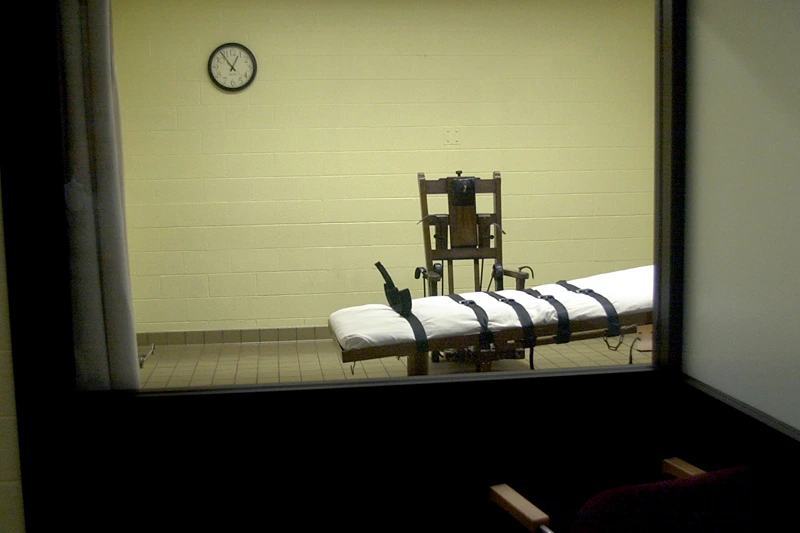

OAN’s Abril Elfi
10:17 AM – Monday, January 22, 2024
Alabama is preparing to carry out the first nitrogen gas execution. However, the inmate’s lawyers are asking the U.S. Supreme Court to review whether the execution will violate the U.S. Constitution since it is the state’s second attempt to execute their client.
Advertisement
Attorneys representing Kenneth Eugene Smith, an inmate on Alabama’s death row who is set to become the first person to be executed by nitrogen hypoxia this week, have requested that the U.S. Supreme Court (SCOTUS) consider whether Smith’s execution would violate the Constitution since this is the state’s second attempt at carrying out the death penalty and because the first one had “gone wrong” for reasons that the state “should have known about.”
Two juries found Smith guilty on two separate occasions of killing Elizabeth Dorlene Sennett in 1988 in Colbert County, Alabama, in a murder-for-pay plot. Sennett, a pastor’s wife, suffered repeated beatings and stabbings. Smith admitted to his involvement in the murder and has been detained on death row since 1996.
Smith is scheduled to be executed on Thursday by nitrogen hypoxia, which, if carried out, would make him the first to be executed by lethal injection since it was introduced in 1982.
The state says that the nitrogen gas will make the victim unconscious very quickly, but opponents have compared this never-before-used method of execution to unsound experiments on humans.
Smith had contested the state’s choice to have him executed via lethal injection, and the U.S. Supreme Court ruled in favor of the state last year. However, the SCOTUS decided not to revisit the decision of a lower court that upheld Smith’s right to die via fatal gas injection rather than injection.
“It is uncontroverted that ADOC inflicted actual physical and psychological pain on Mr. Smith by repeatedly trying (and failing) to establish IV access through his arms, hands, and by a central line as he was strapped to a gurney for hours,” Smith’s lawyers said in their request to the Supreme Court. “Mr. Smith’s was the third consecutive execution that ADOC botched or aborted for that same reason. ADOC’s failed attempt to execute Mr. Smith caused him severe physical pain and psychological torment, including posttraumatic stress disorder.”
They continued by asking the Supreme Court if “a second attempt to execute a condemned person following a single, cruelly willful attempt to execute that same person violates the prohibition against cruel and unusual punishments under the Eighth and Fourteenth Amendments to the United States Constitution.”
Smith requested that the Supreme Court consider whether it was unconstitutional for a state to attempt the execution of a person twice after the first attempt failed. This was the court’s only prior consideration of the issue. In that instance, a prisoner from Louisiana had escaped an electric chair execution due to what appeared to be a mechanical malfunction. The court decided, 5-4, that the second attempt would not be unconstitutional under the 8th Amendment’s ban on cruel and unusual punishments.
In their court brief, Smith’s attorneys referenced a 1947 ruling from one of the justices’ opinions supporting the majority.
“Does [that] not mean that a hypothetical situation, which assumes a series of abortive attempts at electrocution or even a single, cruelly willful attempt, would not raise different questions?” Justice Felix Frankfurter wrote in response to the decision not to block the second execution attempt in that particular case.
Stay informed! Receive breaking news blasts directly to your inbox for free. Subscribe here. https://www.oann.com/alerts





Be the first to comment